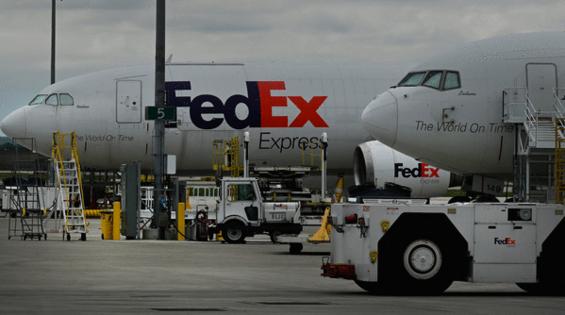Harvested lungs. Factory parts. How flight cutbacks could slow delivery of vital goods to major airports
Published in Political News
A lung just harvested for an organ transplant. A part critically needed to restart an assembly line. The hottest toy for Christmas.
Those are among the kinds of goods shipped by the country's complex air cargo system that could be significantly delayed following the Federal Aviation Administration's decision to reduce flight capacity at 40 major airports, according to logistic experts.
The 10% reduction in flight capacity announced Thursday because of air traffic controller shortages stemming from the government shutdown already resulted in more than 3,500 flight delays on U.S. soil and more 950 cancellations by Friday afternoon, according to FlightAware.com.
Secretary of Transportation Sean Duffy warned Friday that 20% flight cuts could be in order if the shutdown continues.
"We are at a pivot point where certain things will be delayed and certain things will not," said Vincent Iacopella, an executive at Alba Wheels Up, a logistics company that services Los Angeles International Airport. "A higher percentage would be detrimental, but it's also a matter of the length of the disruption."
The air cargo system generally carries time-sensitive and high-value cargo such as pharmaceuticals, medical devices and tech components whose speed of delivery takes precedence over cost.
It's also peak season for retailers trying to get their hands on holiday goods that are fast moving or weren't ready for ocean freight months ago.
"Getting that item to market that influencers have suddenly determined is this year's must-have Christmas gift will be more challenging now," trade economist Jock O'Connell said.
The system includes not only major carriers such UPS, DHL and FedEx but also smaller competitors and dedicated freighters operated by commercial airlines. Also playing a key role in same-day delivery is the cargo hold of passenger flights operated by commercial airlines.
"Shippers are using airlines, because airlines have flights in the air all day long. It's treated as baggage," said Brandon Fried, executive director of the Airforwarders Association. "That's the highest priority."
Among the goods that Fried said are shipped in cargo holds are harvested lungs that need to be delivered to an operating table, temperature-sensitive and radiological pharmaceuticals and parts needed for assembly lines. Any cancellation or flight delay immediately would impact such deliveries.
"It's just at the beginning. If this lasts for a few days, you're going to see significant impact throughout the air cargo supply chain," he said.
Less affected, he said, would be air cargo companies such as UPS that have their own fleet of planes and can fly at night outside the FAA flight restrictions that run from 6 a.m. to 10 p.m.
In a statement, Fed Ex said it had contingency plans in place to move "time-sensitive" and "critical shipments" such as lifesaving pharmaceuticals and medical devices.
LAX is one of the five largest cargo airports in the country and a major destination for cargo arriving from China, Taiwan and other Pacific Rim countries.
David Gibson, president of the Los Angeles Air Cargo Association, said so far the FAA order has not disrupted international flights arriving in the U.S. as airlines adjust their operations domestically.
Many flight cancellations could be handled by long haul trucks, he said, but that could change if the FAA further restricts flights, he said.
"If it goes beyond this, then it can get really ugly, but I don't think it will," he said. "Maybe I'm just being hopeful."
_____
©2025 Los Angeles Times. Visit latimes.com. Distributed by Tribune Content Agency, LLC.
























































Comments